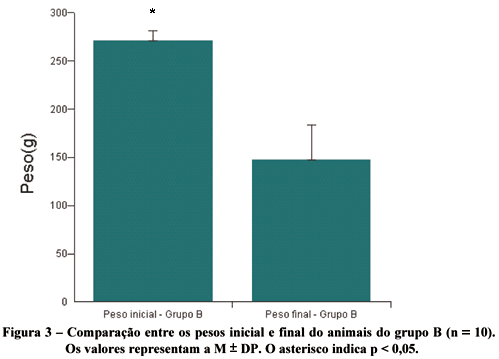Presently, approved medicines do not exist to treat enterocutaneous fistulas. Somatostatin and its synthetic analogue octreotide are the more widely used with this purpose. However, the evidence supporting its use is still insufficient. Objective: The therapeutic effects of octreotide was investigated in an experimental model of enterocutaneous fistula. Methods: In twenty male Wistar rats weighing 210±17g a jejunocutaneous fistula was surgically done. After that, the animals had been randomly divided into three groups. In the group A (n=10) octreotide was administered once a day (4 m g/kg/body wt/s.c) while in the group B (n=10) the rats were injected with saline solution in similar amount to the used to dilute octreotide. The group C (n=10) had no fistula. The rodents had been inspected regarding the daily volume of the fistula output, the necessary time for its spontaneous healing, clinical and biochemical evaluation, RBC count, and nutritional state. Results: There was a fourfold faster spontaneous fistula healing in the rats treated with octreotide and they had not had significant clinical, biochemical, hematologic, or body weight reduction during the experiment. On the other hand, in the group B there was a sixty percent of body weight loss, with forty percent of the rats showing cachexia. Other important findings in this group was marked anemia, hypoglobulinemia, and profound hypoalbuminemia. Conclusion: The octreotide is better then placebo and they allow to say that, according to the strict conditions of the experiment, the drug was effective in the healing of uncomplicated enterocutaneous fistulas in rats.
Octreotide; Somatostatin; Intestinal fistula; Cutaneous fistula






